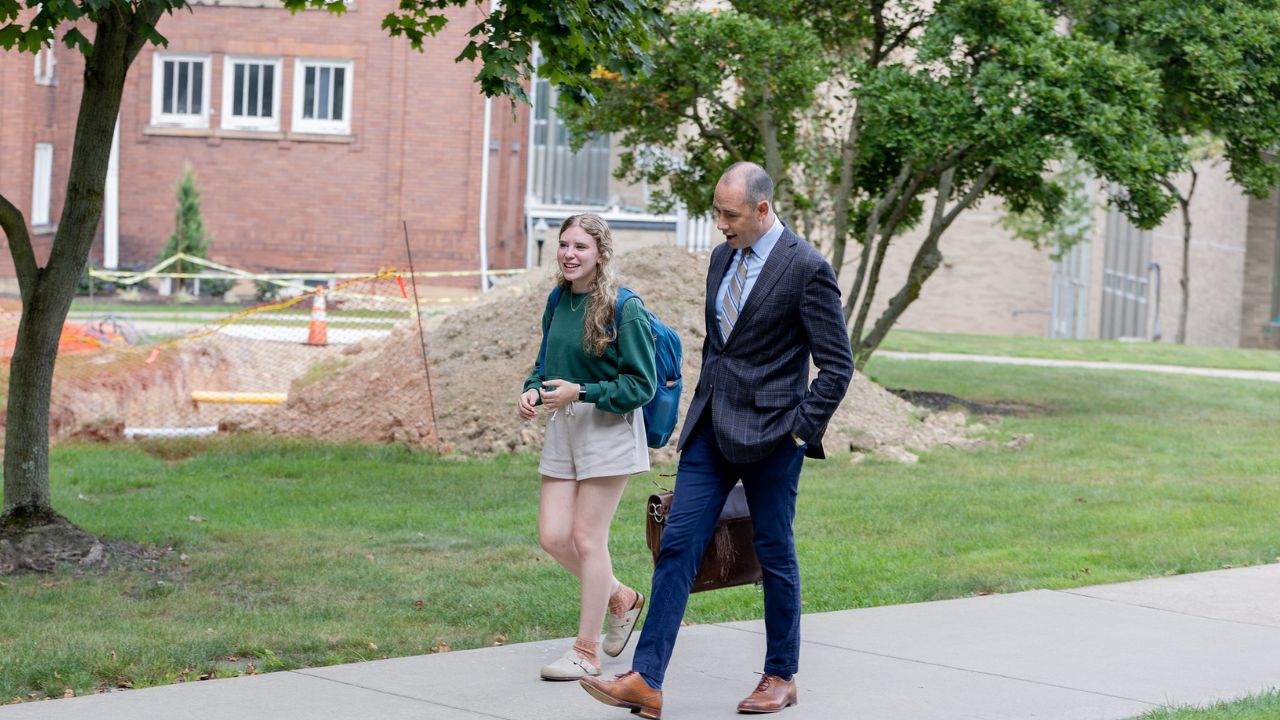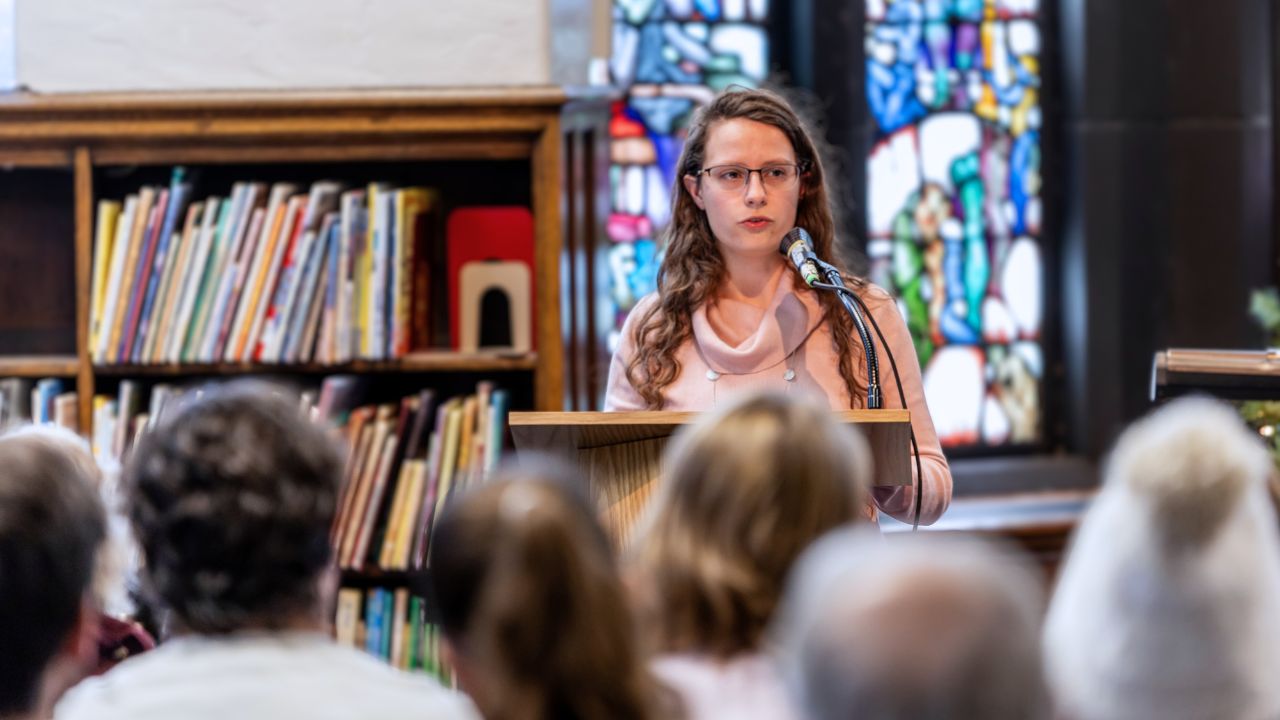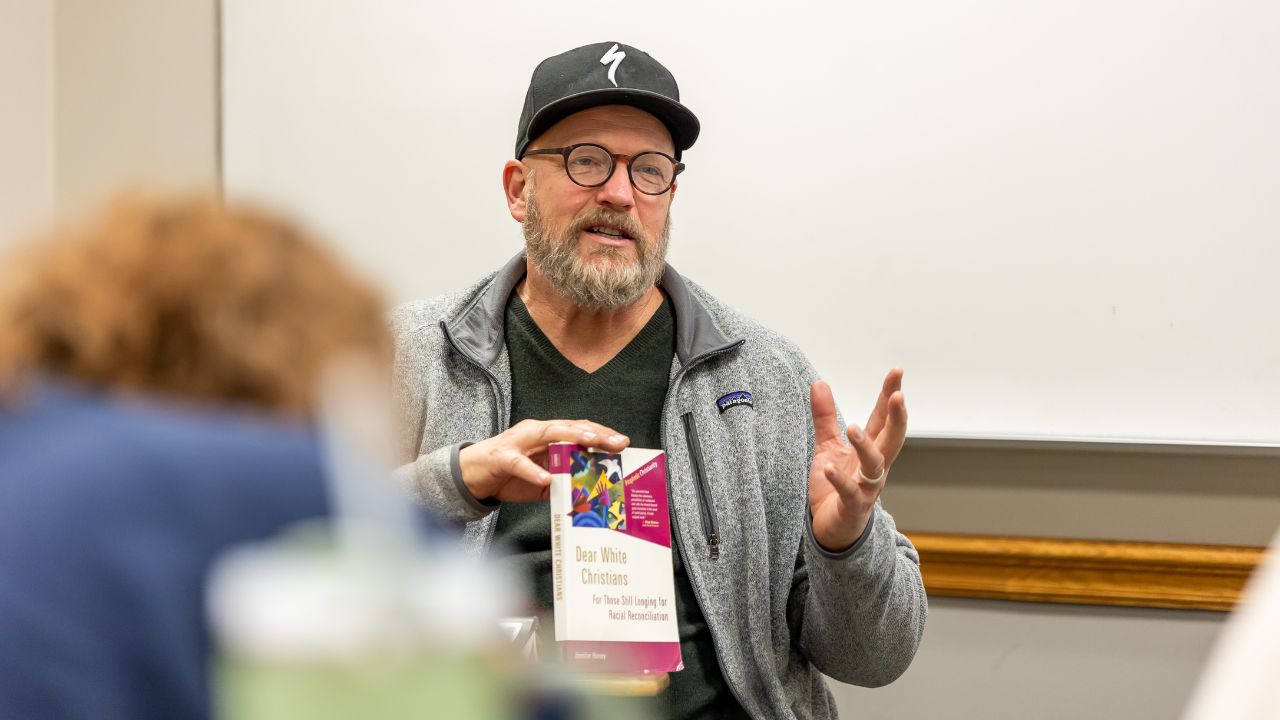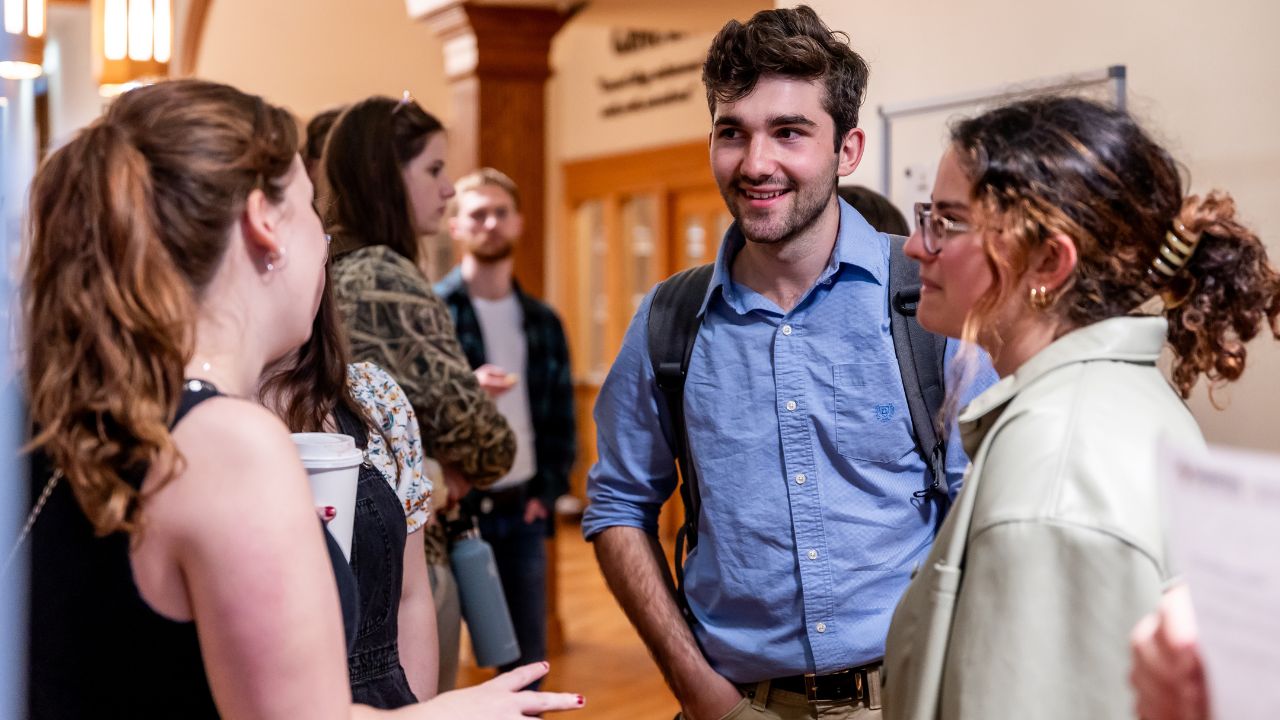
To say that the field of communication has changed in the last 25 years would be an understatement. As communication technology has expanded into all spheres of life, the need for careful and high-quality communication work has increased dramatically. At the same time, the increase in messaging potential has uncovered old questions and problems studied in Ancient Greece. In that era, the development of persuasive speaking and writing techniques was condensed into what we now call the discipline of rhetoric. Today’s use of deepfake video technology and the spread of misinformation poses similar threats to our understanding of what is true, good, and beautiful. The power of telecommunication increases the importance of discerning what is true, and determining how as humans we might communicate to promote the prosperity and peace of society. Never have we been able to speak so intimately with companions at so great a distance. We might even venture to say we are entering into a new sophistic era in which technique rules all forms of human communication.
The newly designed major at Geneva entitled Communication Media & Rhetoric endeavors to equip today’s students to navigate this tumultuous landscape by seeking both the good of their neighbors and the glory of Christ. To do so, the major brings together the contemporary study of communication medias with the wisdom of the ancients who discovered more about the troubles and difficulties of communication than we might ever know. Along with classical rhetoric studies, we have introduced the philosophical school of phenomenology as a counteractant to the threats of digital technology which emphasizes the visual sense and discards the other senses. Human communication involves a complex of sensory events alongside the more visible effects of things recorded. Phenomenology asserts that our senses, while at times misleading, can provide genuine understanding in human communication. Researchers, like Edward T. Hall, suggest that the relationship between what we feel and what we understand is often closer than we think. To leave out the body in human communication puts forth an immaterial understanding of the world, a place created for our bodies. A world made for bodies means that what we say and do matters to the people around us and to Jesus who once walked this very same earth, with the primary concern being how we relate to people in our time.
The continuing study of communication at Geneva College, attentive to all these complexities, asks first and foremost what relationships ought we to encourage. Rooted in a strong orientation toward the persuasion of different publics, we ask how we can encourage different people to orient themselves toward God and toward each other. Or at the very least, orient publics towards that which God has ordained as commonly good. Too much mediated communication segments our experience of God’s world and the people who inhabit it. We aim to reunite student’s relationship to the world and each other so that their professional aims align with the gifts given to them by God. We don’t presume to offer the most comprehensive study of human communication currently available in a collegiate curriculum. In fact, we’ll tell you we don’t. Instead, our purpose is to teach students about the humble nature of good communication work, and while the world chases technique driven methodologies to add up looks and likes, we’ll be calmly and carefully asking students to speak, write, read, and record with all their senses, but most of all with heart.
Aiming with and for the hearts of others means taking our work seriously, even though it is commonly invisible. Like fire, good communication work does wonders in the right place. It can warm up a room, it can cook up something delicious, and it can shed light on what is dark. However, as St. James warns us, it can also burn everything down. We don’t see this as a deficit. Instead, the weightiness of our work raises the stakes and makes it even more important. Just like engineers need to build good bridges, we train communication professionals to build important relationships that overcome divisions and ease peoples’ burdens. Like a well-placed fire, good communication work animates ears and eyes numbed by our media-rich culture, melt hearts hardened against love, and encourages rich engagement with God’s world and the people in it.
-Joel Ward, PhD and Maria Shemer '26
Opinions expressed in the Geneva Blog are those of its contributors and do not necessarily represent the opinions or official position of the College. The Geneva Blog is a place for faculty and contributing writers to express points of view, academic insights, and contribute to national conversations to spark thought, conversation, and the pursuit of truth, in line with our philosophy as a Christian, liberal arts institution.
Oct 25, 2023Program SpotlightRelated Blog Posts
Request Information
Learn more about Geneva College.
Have questions? Call us at 724-847-6505.











 Online Course Login
Online Course Login